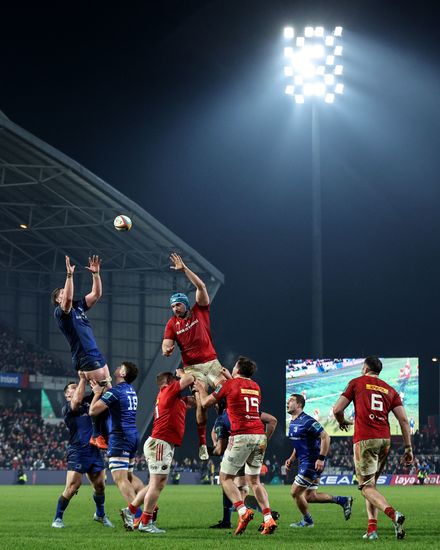[caption id="attachment_70248" align="aligncenter" width="600" caption=" Karen F. McCarthy."]
Journalist and author Karen F. McCarthy has long been fascinated by the story of the Scots Irish in America, and though this never less than feisty branch of the greater Irish diaspora has been the subject of considerable study in the United States itself, her telling of the Scots Irish tale begins where it all started: in the counties of Ulster and in particular Antrim, the county from where, on a clear day, you can actually see Scotland.
It started with the old debate that pops up regularly in a Dublin pub. One person claimed that American country music began with a fiddle from Cork and another claimed it for the North.
The search for the answer led to the relatively uncharted world of the Ulster diaspora of the 1700s, and a trip into America's Deep South to discover the extraordinary contribution the Scots-Irish made to American culture and character; how their thirst for independence, love of the land, religiousness, fighting spirit, sense of mischief, innovativeness and imagination gave America legends like Davy Crockett, Edgar Allen
Poe and Stephen King; how they spawned country music, created America's biggest spectator sport, helped win the Revolutionary War, put a man on the moon, and put Republicans in the White House to help define a new world order.
The starting point was Larne in County Antrim, the place from where the first ships sailed, from where the Reverend James McGregor - who once hailed the arrival of King William's ships down the Foyle to relieve Derry - set sail with his flock to found the first Scots-Irish community in America.
Larne is a unionist town, and Catholics, at least during the Troubles, knew to keep their heads down. So for a Catholic trying to sniff out little known Protestant history, it was surprising to find the people of Larne were enthusiastic to help uncover - as they said - this other facet of their own history that has been largely neglected during the 40 years when their identity and survival was defined by the Troubles.
This was a common response throughout the North. Protestant teenagers growing up post-peace process feeling adrift in society and lost in history. Yet they were eager to help uncover other aspects of their heritage.
"The Protestants don't feel like we got a fair deal from the Good Friday Agreement," said Andy Walker, a 29-year old teacher from Belfast's Shankill Road.
While Sinn Féin remained well organized, and Catholic schools imbued their students with a strong sense of their own traditions and history, Protestant kids in state schools were lacking role models, grades were falling, and a prevailing sense of despair was manifesting itself in vandalism and crime.
They saw First Minister Peter Robinson attending a GAA match and the queen visiting Dublin as top-down photo ops that didn't resonate with the people in the Shankill where the war was fought. Their Presbyterian nature needed a bottom up effort to revitalize the Protestant working class community, to give it back a sense of itself, and a broader sense of history than just Irish independence, Carson, de Valera, and the Siege of Derry.
"[Political] debates always come back to Bloody Sunday and the Shankill bombing," Walker said.
"There's space for other history, but with the Troubles we've lost our real heritage and outward focus."
Feeling under siege is familiar to the Protestant community in Northern Ireland. Fighting the Irish since they arrived, they were eventually forced into the New World in the 1700s when their embattled colony was subjected to rack-renting, taxation and religious persecution at the hands of the English, this after their linen industry grew too competitive and their religious practices too independent.
Unfortunately, their sheer numbers, stubbornness, and feisty nature overwhelmed Boston, prompting one man to cry, "There are more Irish than people here." They subsequently tumbled down the Appalachians into the welcoming arms of the Virginia and Carolina colonial governors who were only too happy to have hardy settlers to buffer them from the Indians.
The ability to survive in the harshest conditions is undoubtedly an Ulster-Scot strength. The pinnacle of their dogged determinism is evidenced the 1688-9 Siege of Derry, a victory of will on the part of the few against a well-equipped army.
History has shown it in Ireland and America: leave an Ulster-Scot alone, give him a fair shake, let him feed and defend his own family, worship his own way, entertain himself to his own liking, and he'll keep his spirits high, work hard, play hard and mind his own business.
It's little wonder then that once in America, the Ulster-Scots became Second Amendment, small-government, innovative, militaristic, religious freedom diehards, and a law almost unto themselves.
North Carolina is home to Junior Johnson, a notorious moonshine runner and early NASCAR hero. Donned "The Last American Hero" by Tom Wolfe in Esquire Magazine, Johnson first manifested his Scots-Irish rebelliousness and sense of adventure by regularly outrunning the law down tiny, twisting mountain roads in a car full of his father's moonshine that they sold to support the family.
Moonshine runners began racing each other around old horse tracks to see who had the fastest whiskey car. From this, NASCAR, America's biggest spectator sport, was born.
Through centuries of hard work, harsh conditions, poverty, and war, the Scots Irish maintained their love of music and storytelling. People in the South still talk about Hank Williams, a country music legend who embodied the Scots-Irish contradiction: a poet that could move people to tears with his sincerity, yet terrify them with his violent self-destructive streak.
Harry Poe, descendent of Edgar Allen Poe, father of American Gothic and predecessor to Scots-Irish writer, Stephen King, explained how his ancestor embodied the imagination, innovation, and self-destructive contradiction at the heart of the Scots Irish. An essentially happy man with a vibrant imagination who first posited a Big Bang theory in his prose-poem, "Eureka," and sent his hero, Hans Pfall to the moon long before another Scots Irishman, James E. Webb from Tally Ho, North Carolina did it in reality, EA Poe is usually remembered for his tormented ravings at the graveside of his beloved wife.
Perhaps the reason the Scots Irish heightened awareness of their own culture, ancestry, and identity is because many still live in relatively close proximity to the original family settlements. Or perhaps their siege mentality was reinforced by the Civil War and their subsequent exploitation at the hands of carpetbaggers to produce a sort of tight-knit, clannish nature.
Whatever the reason, they can regale a visitor with old stories and a well-preserved history that is rich in the telling.
The mountains are filled with unlikely characters: pastors who raise up serpents to the Lord, political strategists who go out with a shotgun to hunt their own dinner, poets, songwriters, activists whose love of the land has translated into a campaign for ego-friendly, sustainable productivity.
Their feisty nature - forged from being under siege from the Irish, the English, the Native Americans, and the Yankees - has resulted in an entrenched militarism that has filled the ranks of the U.S. military and given the nation many of its warriors like George Patton, Stonewall Jackson, and Jim Webb.
Their championing of governmental non-interference has entrenched them in conservative American politics and produced a long list of Scots-Irish presidents who have left an defining mark on American society: Andrew Jackson, Woodrow Wilson, Harry Truman among others.
Even today, no one can win the White House without at least part of their red state vote.
After a year in the American South, these tall-tales and colorful characters were warmly received back in Belfast. People like Andy Walker were gratified to find that the Ulster-Scot legacy was thriving despite the political and cultural apathy in the working class Protestant communities in the North, and that it could be renewed with an outward focus that these communities lost sight of during the Troubles.
As part of the first generation born after that era, he knew one thing for sure.
"We're more than what we've been focused on," he said.
Karen F. McCarthy has written in the past for the Irish Echo. She was an embedded reporter in Iraq from where she contributed stories on the war to papers including the Irish Times. Her four-part documentary series, "Made in America," a series dealing with the "new Irish" immigrants who came to prominence in the 1990s, was broadcast on RTE and was nominated for an Irish Film and Television Award for Best Documentary Series. McCarthy also worked at Al Jazeera English in Washington, D.C. where she wrote and produced a daily segment for the Riz Khan show. "The Other Irish: The Scots-Irish Rascals who made America," is available at Barnes and Noble and at amazon.com.










